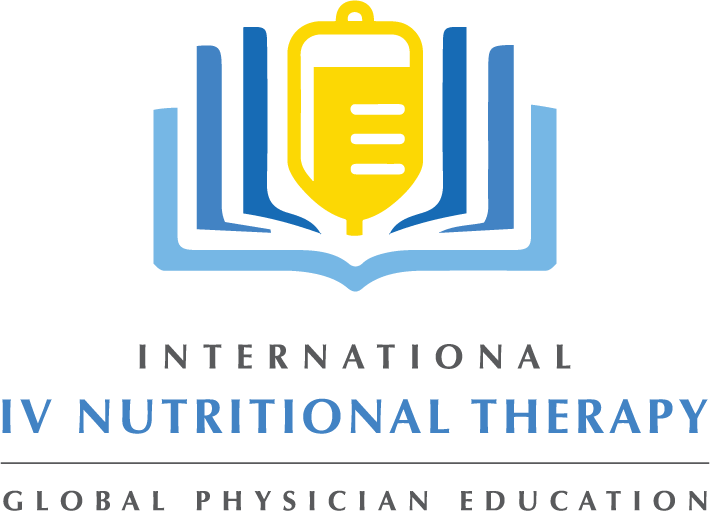
Magnesium is one of the most critical minerals in the human body, responsible for the smooth operation of different body parts like the heart and muscles. Without enough magnesium, people are more at risk of developing conditions such as heart disease and diabetes.
Despite this, over 50% of Americans don’t get enough magnesium in their daily diet. Even more so, the essential roles magnesium plays are all too easily overlooked. Learning more about the ins and outs of magnesium will help you gain valuable insights into treatment options.
Read on to learn everything you need to know about the role magnesium has in the human body.
Overview of Magnesium
Magnesium is one of the essential macrominerals found throughout the human body. In fact, magnesium is the fourth most abundant mineral and is critical for well over 300 vital enzymatic reactions, which play a role in breathing, digestion, muscle function, and more.
Magnesium also plays the role of a cofactor, also known as a helper molecule, which has a part in biochemical reactions throughout the body. These include energy creation, protein formation, muscle movements, and creating and repairing DNA.
Over half of the magnesium in the body is found in the bones, while the remaining magnesium is located in the soft tissues, muscles, and body fluids like blood.
Overall, having enough magnesium in your body can lower the risk of health conditions including heart disease, type 2 diabetes, and Alzheimer’s disease.
Magnesium Deficiency
Normal serum magnesium concentrations should be between 0.75 and 0.95 millimoles (mmol)/L. Hypomagnesemia occurs when a person’s magnesium levels drop below 0.75 mmol/L.
Low magnesium levels aren’t common in healthy people and in most cases, you’ll find people with magnesium inadequacy instead, since they don’t get enough in their diet.
Having low magnesium is usually due to health conditions like chronic diarrhea, uncontrolled diabetes, kidney injuries, inflammatory bowel disease, and celiac disease. People with toxic overloads of chemicals, pancreatitis and GI disease are also more at risk as well as older adults.
In addition, anyone with alcohol use disorder (AUD) is more likely to have a true magnesium deficiency since alcohol impairs the body’s ability to properly absorb nutrients and vitamins.
Magnesium Deficiency Symptoms
Mild hypomagnesemia doesn’t usually cause symptoms in people. When magnesium levels are low enough to cause symptoms, they typically include:
- Nausea and vomiting
- Muscle twitching in the face
- Exhaustion
- Weakness
- Tremors
- Personality changes
If the magnesium deficiency is more severe, you’ll see symptoms like seizures, changes in heart rhythms, and muscle contractions.
Sources of Magnesium
Adult men need between 400 and 420 mg of magnesium daily, while women need between 310 and 320 mg of magnesium per day.
The first and most obvious source of magnesium is in the foods people eat daily. You can also get magnesium in other ways, such as supplements and IV therapies.
Foods High in Magnesium
You’ll see that many foods naturally have high magnesium levels like nuts, seeds, whole grains, legumes, and dark green vegetables. Products like fortified food and breakfast cereals usually include additional magnesium to help people get their daily intake.
Some of the best magnesium-rich foods include:
- Dark chocolate (caution with the lead levels in a variety of chocolates)
- Avocados
- Tofu
- Pumpkin seeds
- Lentils
- Almonds
- Oats
- Barley
- Bananas
Eating fatty fish like halibut is also a great way to improve your magnesium intake.
Magnesium Supplements
Though it’s usually possible to get enough magnesium from your daily diet, some people may have trouble meeting their needs through food only. This is especially the case if they already have a deficiency.
Taking magnesium supplements is generally considered safe, and usually causes minimal side effects.
Since magnesium is crucial for overall health, taking supplements can provide numerous health benefits.
Benefits of Magnesium Supplements
First, magnesium supplements can reduce blood pressure levels, which helps reduce the risk of heart disease. This is due to the role magnesium plays on a cellular level and how it impacts muscle function.
Magnesium supplements can also play a role in regulating blood sugar levels and improving insulin resistance.
A study of people with type 2 diabetes showed taking 250 to 600mg of magnesium daily for 24 weeks resulted in a significant reduction in fasting blood sugar levels.
The effects of magnesium can also help relieve migraine headaches. This is because magnesium deficiencies can lead to blood vessel constriction.
IV Therapies
Finally, you can utilize IV therapies to help treat magnesium deficiencies in your patients.
It’s most common to have patients present with hypomagnesemia due to decreased intake from conditions like alcohol use disorder, and acute and chronic diarrhea.
IV therapies are extremely common and very effective for patients in a hospital setting, with 80% of all patients needing IV therapy during a hospital stay.
If low magnesium levels are due to conditions that cause dehydration, obviously you’ll need to restore the fluid balance in the body while bringing the magnesium to a normal level.
You’ll need to look at the different types of IV fluids like crystalloid solutions which are most common, and include lactated ringers and normal saline. In many cases, these solutions will contain a carefully prescribed amount of magnesium and other electrolytes.
You can also give 1 to 2 g of magnesium sulfate IV over an hour to stable patients with low magnesium levels. For more urgent situations, you can give 1 to 2 g of magnesium in approximately 15 minutes, while observing the patient carefully for sign of speed shock.
It’s essential to use caution in patients with abnormal kidney function, as often you’ll need to administer less magnesium and continue to monitor their levels.
You also need to consider that low electrolyte levels due to kidney issues may result in the need to replace other electrolytes like potassium and calcium.
It’s critical to learn more about different IV therapies for low magnesium levels, as well as other clinical indications.
Learn More About Magnesium and IV Therapies
Now that you know more about the role of magnesium in the body, you’ll be better able to address your patient’s needs.
It’s time to take the next step and learn more about magnesium and various IV therapies that can benefit your patients. At International IV Nutritional Therapy, our mission is to educate on how to safely administer IV therapies while maintaining current medical care standards.
You’ll also learn about the latest treatments and training in the health industry to keep you up to date and keep your patients in balance.
To learn more about our upcoming seminars, visit www.IVNutritionalTherapy.com or contact us here.


